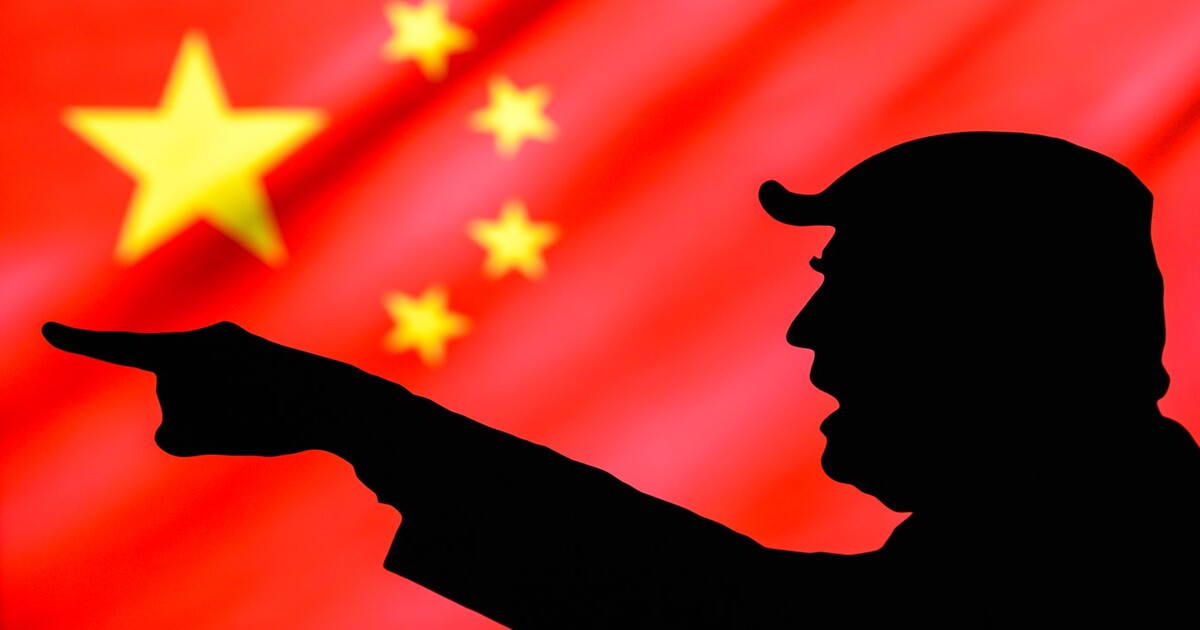China and the End of the American Dream
Why Donald Trump might get elected President again in 2024.
February 12, 2024

A Global Ideas Center, Strategic Assessment Memo (SAM) from the Global Ideas Center
You may quote from this text, provided you mention the name of the author and reference it as a new Global Ideas Center, Strategic Assessment Memo (SAM) published by the Global Ideas Center in Berlin on The Globalist.
When Donald Trump first announced his run for President of the United States in 2015, he had long determined to do so as a populist.
In previous roles, including as a reality TV show host, he already had identified the issues that really irked so many Americans (especially low wages and the loss of jobs in the Rust Belt).
As a true populist, Trump did not have any intention to solve these problems. He saw it as his mission to channel the collective anger and frustration of his supporters to move toward realizing his singular goal: Gaining near imperial power for himself.
So far, so easy
As it seems, for a very long time before reaching for the U.S. presidency, Trump had an instinctive grasp for shaming and blaming whoever the most suitable culprit was
In his hyper-dramatized world view, he was dealing with a sinister force seemingly determined to forever destroy the heretofore much-embellished American Dream – China!
Predictably enough, pinpointing China got him the willing support of a lot of blue-collar workers and racists. However, that was the easy part.
Tying-up the establishment with China
The more difficult part was to find a trump card to play against his staunchly unapologetic establishment opponents – Republicans and Democrats alike.
The best way to achieve that was to tie all those political establishment opponents directly as aiders and abettors of the identified key enemy – China. By virtue of that one step, he conveniently made all of his domestic opponents into enemies of the American people.
From Richard Nixon, who opened the door to China, to the Clintons who held it open to the Bushes who never shut it, in the Trump world they were all active co-conspirators with the Chinese in their ambitions to replace the American Century with a Chinese one.
His formula may work in 2024
An important reason for Trump´s lasting political appeal today is that decent American patriots, not hyper-partisan ideologues, came to the conclusion that Trump was on to something with his line of argument on China.
The U.S. income gap has widened, and many U.S. jobs have been exported to China (and Mexico, of course). Technology transfer – and China’s unrepentant theft of U.S. intellectual property rights – has made a strong and nearly evenly matched adversary out of China, economically, politically and militarily. As a result, the “American Dream” is at risk.
The elite’s dirty China dealings
In an absurd way, the American elite (and the elites in other countries, to be sure), i.e. its political and economic establishment, is indeed responsible for the emergence of China as a powerhouse.
From Nixon’s opening to China and “canceling” Taiwan, to 15 years of international negotiations that allowed “no-rule-of-law” China to enter the World Trade Organization (WTO) in December 2001, to decades of closing their eyes to the geopolitical ambitions of China, more than a generation of U.S. mainstream policymakers enabled China.
In the meantime, the country´s always predominantly self-interested economic elite eagerly shipped off jobs and production to low-paid Chinese workers – all to benefit their own pockets and those of their shareholders.
It is no surprise that the Trump clan is no exception to this rule. Indeed, even his daughter Ivanka was very keen on her commercial deals in China.
Will Trump stop the “Chinese Century”?
As the early (final?) Republican primaries in Iowa and New Hampshire suggest, Trump is once again wiping the floor with his Republican opponents.
A common refrain to the 2016 campaign is his successfully equating them as co-conspirators of Chinese ambitions to reign over a Chinese Century.
China, not Trump, is doing China in
As it happens, Trump may well succeed in that ambition, although such an outcome would be largely due to the imperial overreach and stifling mind control pursued by that Communist princeling called Xi Jinping.
Xi, of course, is the man who wants to prove that Bernardo Bertolucci had it all wrong when, in 1987, he directed a grand movie on Aisin Gioro Puyi, presumably the last emperor of China.
China still runs the table
Trump is not just capturing his base, but possibly enough of the “reasonable” Americans who believe, rightly or wrongly, that things have not improved in the last four years for those Americans who suffered most from China’s takeover.
So, some of them – once again and with little learned – in their growing despair say to themselves: If there is anyone capable of reversing this U.S. decline that was “Made in China”, it must be Trump.
Trump, the global China strategist
For all the much-deserved criticism to be levelled at Donald Trump and his very often preposterous (even lunatic) policy stances, his view on China is an exception.
Of course, that is not so much a matter of intellectual brilliance. Rather, it is another display of the saying that even a stopped clock is right twice a day.
Trump put China firmly on the map as the primary cause for the decline of Western prosperity. In terms of electoral politics, he made the right move: His was not an appeal to marginal groups alone, he appealed to the masses.
Zero-sum strategists…
And he is right insofar as the CCP leadership in China sees all its relations with the entire rest of the world as a zero-sum game.
It has no idea of the concept of reciprocity, even though that is fundamental to all international trade, commerce, democracy and, in this day, power relations.
… vs. Western softies
Trump´s hard line did not just play in the United States. Initially, Trump was belittled and reviled by vast majorities in European democracies.
The German government and business elites, perversely hooked to energy from Putin´s criminal Russia and exports to China´s Communist overlords, formed the most viable resistance for a long time.
But events have compellingly shown them off target while Trump, certainly by comparison, was rather on target in his views on China.
There is now a strong base for anti-China sentiment – years after Trump (!) issued the call. This may give Trump just enough momentum with more centrist U.S. voters to push him over the finish line in November 2024.
The world waits with bated breath, less and less bated though.
Takeaways
The anti-China sentiment – years after Trump used it as a political vehicle – may give him just enough momentum with centrist U.S. voters to push him over the finish line in November 2024.
In the Trump view of the world, U.S. political elites are all active co-conspirators with the Chinese in their ambitions to replace the "American Century" with a Chinese one.
An important reason for Trump's political appeal today is that decent American patriots, not hyper-partisan ideologues, came to the conclusion that he was on to something with his line of argument on China.
A significant reason why the “American Dream,” economically and militarily, is at risk is technology transfer to China – and China’s unrepentant theft of U.S. intellectual property rights.
Trump may well succeed in his ambition to stop China's rise, although such an outcome would be largely due to the imperial overreach and stifling mind control pursued by that Communist princeling called Xi Jinping.
For all the much-deserved criticism to be levelled at Donald Trump and his very often preposterous, even lunatic policy stances, his view on China is an exception.
Trump put China firmly on the map as the primary cause for the decline of Western prosperity. In terms of electoral politics, he made the right move.
That Trump “got it” on China is less a matter of intellectual brilliance than a display of the saying that even a stopped clock is right twice a day.
A Global Ideas Center, Strategic Assessment Memo (SAM) from the Global Ideas Center
You may quote from this text, provided you mention the name of the author and reference it as a new Global Ideas Center, Strategic Assessment Memo (SAM) published by the Global Ideas Center in Berlin on The Globalist.


